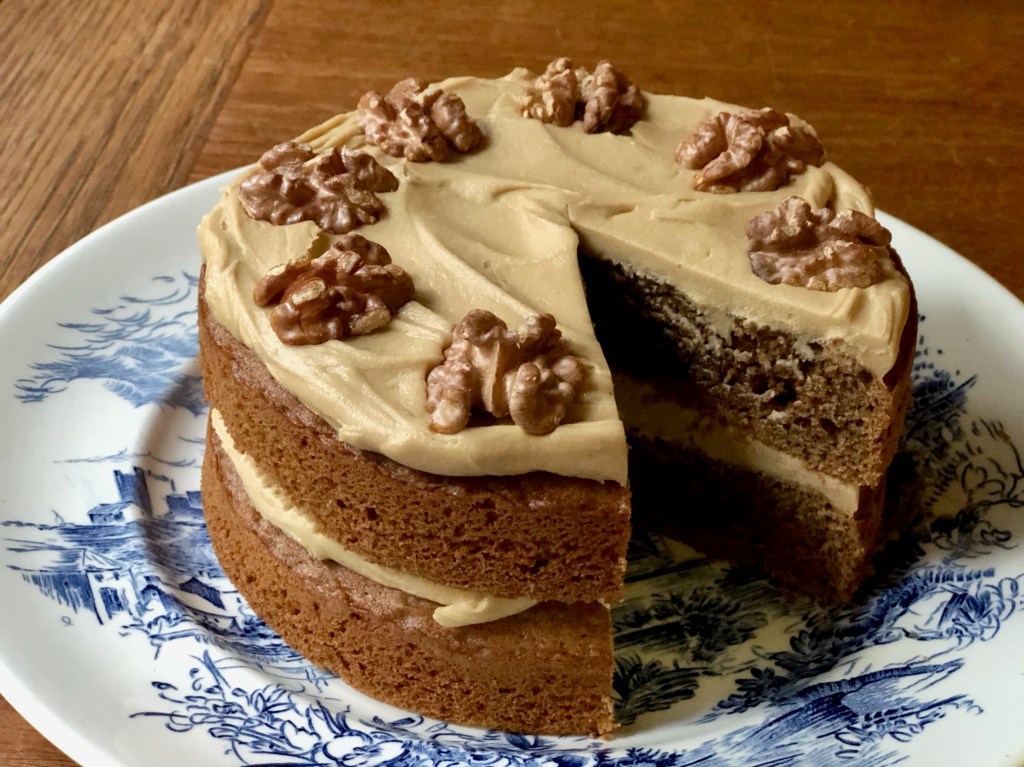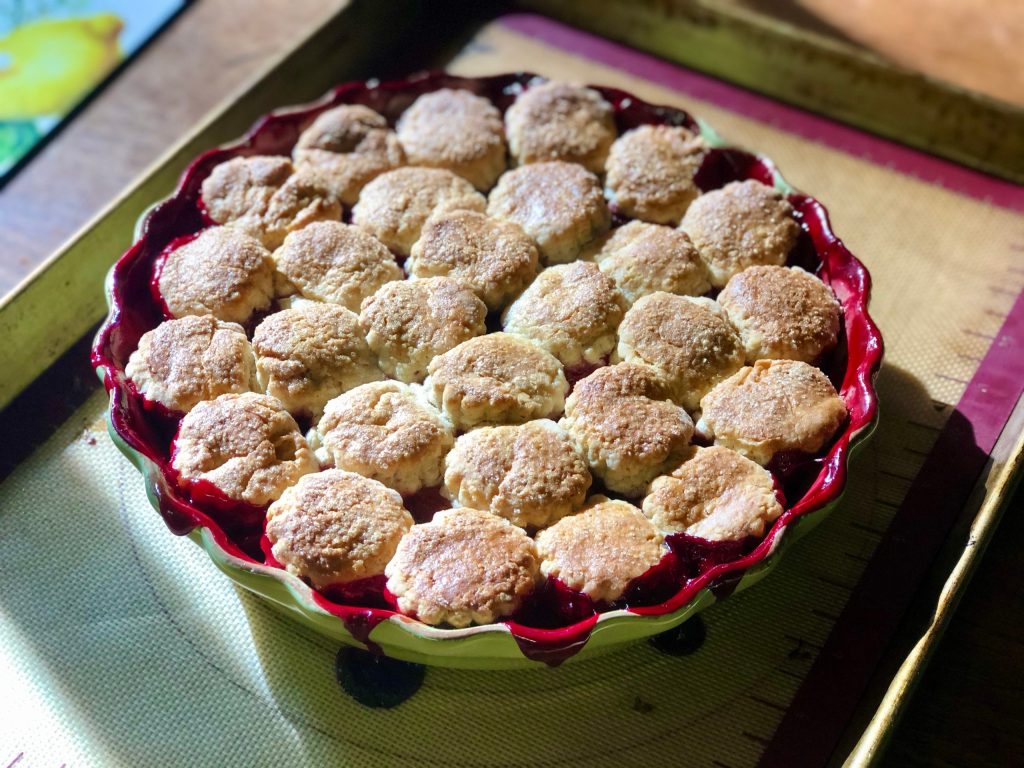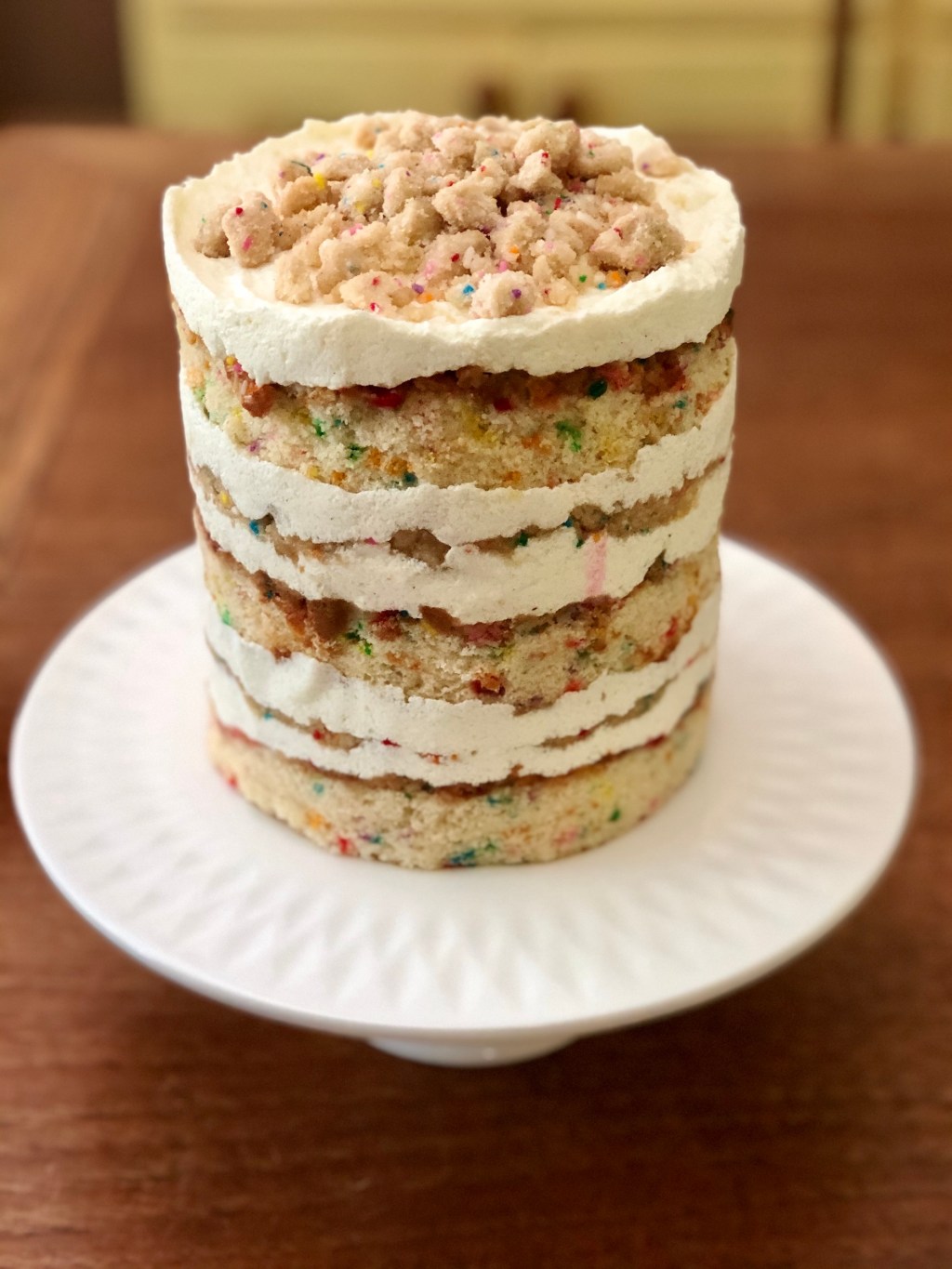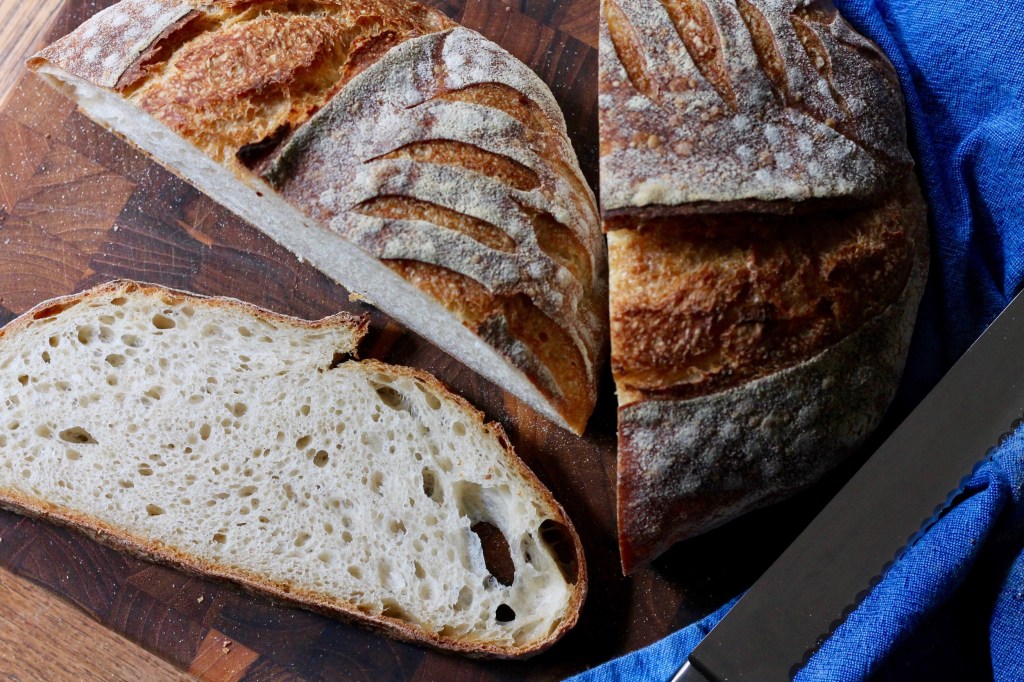
I first got into sourdough baking back in 2011 after making my own starter as part of a Daring Bakers Challenge. I loved baking with it and maintained it faithfully for almost four years, but then my schedule started getting busier and my poor little sourdough starter eventually died from neglect in the back of my fridge 😦 I was pretty sad about it (and kind of embarrassed too – you’ll notice that I never mentioned it here until now!), but I didn’t have the time or energy to put into cultivating or acquiring and maintaining a new starter. Recently though, I’d been wanting to get back into the sourdough game (have you SEEN all the gorgeous sourdough bread on Instagram?!), so last week when a friend offered me some of her 100 year old rye starter, I jumped at the chance. I have been nursing a little glass jar of bubbling flour and water on my kitchen counter ever since and I couldn’t be happier about it! I’ve noticed that this well-established starter is more reliable and predictable than the one I made myself, which probably never quite achieved its full strength as a starter, and I’m very excited to experiment with it.

So anyway, because this past weekend was Easter, my first project with my new starter was these beautiful sourdough hot cross buns, studded with rum-soaked raisins, vanilla, spices, and lots of citrus zest. I wouldn’t necessarily recommend these as a first bake if you are totally new to sourdough, but for me it was a great way to get back into it. I like that the levain (the pre-fermented mixture that you inoculate with your existing “mother” starter and use to build the dough) contains a bit of brown sugar, which is supposed to tame the acidity of the final dough but I think it also helps keep the little yeasty beasts happy and more active. Either way, it did the trick: the resulting spiced buns have a light, shreddable, brioche-like texture and rich flavour but a very mild sourdough tang.

They also contain a good quantity of raisins macerated in rum and vanilla, which add flavour and moisture to the buns. If rum isn’t your thing, you could soak the raisins in orange juice or tea instead. If you really want to play up the rum-raisin flavour (I wish I’d thought of this sooner), you could add some rum to the brown sugar syrup that is brushed on the buns after baking. I’ve upped the amount of cinnamon because I wished the buns were a touch spicier, but otherwise, these were excellent and a great re-entry into sourdough baking. I can’t want to to make more sourdough things!
Thanks so much for sharing your starter with me, Karin! ❤

PS – there are seven other versions of HCBs on my blog, in case these ones aren’t your cup of tea!
Rum Raisin Sourdough Hot Cross Buns
Recipe adapted slightly from the beautiful blog my daily sourdough bread. Makes 12 buns. Click here for a printable PDF version of the recipe.
My 3-day baking schedule for these buns was as follows – your schedule may vary, depending on the strength of your starter and ambient room temperature:
- Day 1: macerate raisins in a jar with rum and vanilla
- Day 2, morning: mix levain and leave to rise all day
- Day 2, late afternoon: mix dough and leave to ferment a few hours
- Day 2, before bed: shape buns and chill in fridge overnight
- Day 3, morning: proof buns until doubled (several hours) and then bake
A note on the flour: I used unbleached organic Canadian all purpose flour, which has about 13% protein content, meaning it is a fairly strong flour. Alternatively, you could use bread flour, which has a similarly high protein content / strength.
Rum-soaked Raisins (Day 1)
In a small jar, place 90 g raisins. Pour over about 75 g dark spiced rum to just cover them, along with 1 tsp vanilla extract. Screw on the jar lid and give the raisins a shake. Let them sit and macerate for at least 24 hours, shaking occasionally.
(I forgot to take a picture of this – so just imagine some raisins in a jar with some rum 😉 )
Levain (Day 2, morning)
In a small bowl or medium-sized glass jar (so you can see the yeast activity), dissolve 20 g brown sugar in 35 g room temperature water. Stir in 25 g active sourdough starter until dissolved, then stir in 80 g unbleached strong all purpose flour or bread flour. The mixture will be quite stiff and dough-like.

Cover the jar with the lid (not air-tight) and let ferment until the levain has doubled in size – anywhere from 4-12 hours, depending on the strength of your starter and the temperature of your kitchen.

Dough (Day 2, afternoon and evening)
In the bowl of an electric mixer, whisk together 110 g room temperature milk with the seeds from 1/2 a vanilla bean. Add:
50 g brown sugar
2 lightly beaten eggs, at room temperature
1 tsp ground cinnamon
1/4 tsp grated nutmeg
pinch ground cloves
all of the levain, torn into little pieces

Mix everything together with the paddle attachment to combine (don’t worry of the levain is still in separate bits), then switch to the dough hook and add 350 g unbleached strong all purpose flour or bread flour and 7 g fine salt (about 1 tsp). Knead on medium speed for 3-4 minutes until the dough comes together, then let rest for 20 minutes.

While the dough rests, measure out 85 g unsalted room temperature butter and divide it in half. Knead half the butter into the dough – it will seem very messy at first but will eventually incorporate.

Knead in the second half of the butter, then continue kneading for 8-10 minutes, until the dough passes the window pane test (that is, you can stretch it thin enough to see through without tearing). Let the dough rest again for 5 minutes.

Drain the excess liquid from the rum-soaked raisins and add them to the dough, along with the finely grated zest of 1 orange and 1 lemon.

Knead with the dough hook until thoroughly incorporated (I was worried that the raisins might get mashed into the dough, but they were fine) and then give a final few kneads by hand to make sure everything is evenly distributed throughout the dough.

Scrape the dough into a clean bowl, cover it with plastic wrap, and let it ferment at room temperature for 3-4 hours. It will look slightly puffed, but will be nowhere near doubled in size.

After the dough has fermented, turn it out onto a slightly floured surface and divide into 12 even pieces, each about 80 g. Shape each piece into a ball and place them in a 9″x13″ pan lined with parchment paper. Cover with plastic wrap and place in the fridge overnight.

Baking/Assembly (Day 3, morning)
The next morning, place the buns (still covered in plastic) somewhere warm to finish proofing – this may take several hours. You want them to be puffed to nearly double their size, and when you poke them lightly with your finger, the indent springs back slowly.

Just before the buns are fully proofed, preheat the oven to 425˚F (400˚F convection).
In a small bowl, mix together 35 g all purpose flour and 10 g vegetable oil. Add 30 g water and mix until smooth and pipeable (you may need a few extra drops of water). Place the paste in a piping bag, snip off the end, and pipe crosses on the proofed buns.

Bake the buns in the preheated 425˚F (400˚F convection) oven for 10 minutes, then lower the heat to 390˚F (365˚F convection) and bake until golden brown.

While the buns are baking, mix together in a small bowl:
1 tbsp boiling water
1 tbsp brown sugar
1 tsp vanilla or rum
Brush the brown sugar syrup over the buns as soon as they come out of the oven, and allow them to cool on a rack. Serve slightly warm or at room temperature.









Leave a comment